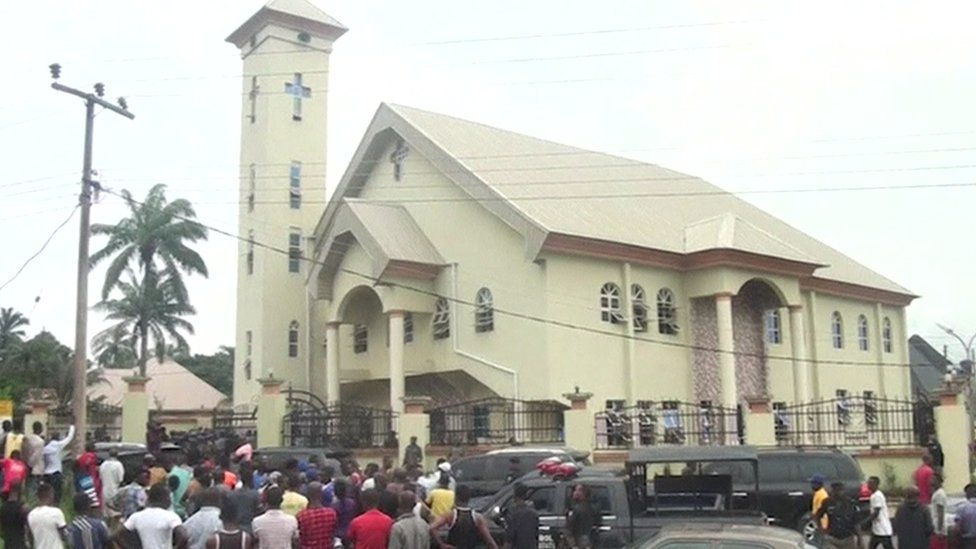A non-governmental organization that researches into how ugly trend of increasing incidents of chronic degenerative diseases in Nigeria could be prevented, Living Science Foundation (LSF) has warned governments and citizens about major dangers posed by consuming Genetically Modified Organsams (GMOs) foods in the country.
Describing the situation as an urgent environmental-health concern in Nigeria, the group expressed deep concern over ongoing deluge of deployment of GMOs foods in the country, citing adverse health effects such as cancers, organ damage, allergic reactions, antibiotic resistance and reductions in nutritional content for consumers of GMOs foods.
The research-driven foundation stated this at a press conference held as part of activities of the 9th National Conference on Environment and Health (NCEH), holding at the Obafemi Awolowo University, Ile-Ife on Wednesday.
On the impending take-over of Nigeria’s staple foods by GMOs, the statement issued by the Foundation and signed by LSD President, Prof. Joshua Ojo and Chairman of the NCEH Planning Committee, Dr Adeniyi Okinni, noted that “there are very good reasons to doubt the thoroughness of the approval processes for these products in Nigeria,”
They therefore urged relevant authorities in Nigeria to conduct appropriate chronic toxicity testings that transparently ascertain the safety of GM food products before their deployment for public consumption in the country.
“The Living Science Foundation is deeply concerned with the ongoing deluge of deployment of GMO foods in Nigeria. At the beginning of the year, on January 11, approval was given for the cultivation of GMO TELA Maize in Nigeria. On the heels of this were the announcements that GMO cassava and potatoes are also on their way. Transgenic rice and sorghum are also known to be lurking somewhere in the pipeline. Since 2019, Nigerians have been officially eating the world’s first genetically modified beans (Bt Cowpeas). The frightening implication of all these, is that virtually all the basic staples in Nigeria are being bioengineered and released for commercial cultivation. This is unprecedented anywhere in the world.
“We have earlier expressed (in May 2017) our deep concerns on the use of GMOs as food in Nigeria. These largely have to do with the obvious issues of loss of food sovereignty and the established adverse health effects. The germlines for the GMOs being released are proprietary products, designed and developed by multinational monopolies with history of aggressive and ruthless commercial operations. It is clear that in course of time, we would need to revert to them, repeatedly, to address issues that would inevitably arise with the deployment of these novel “black-box” products.
“It appears insane that we should submit our precious God-given food sovereignty into the hands of such (or any other) entities in this manner. As for adverse health effects following chronic ingestion of GMOs, these, including cancers, organ damage, allergic reactions, antibiotic resistance and reductions in nutritional content, are very well-established. In her ongoing tussle with the North America Free Trade Zone wherein she is seeking to stop further importation of GMO foods from the United States, Mexico has cited over 150 peer-reviewed research published in top journals, documenting the incontrovertible adverse health effects associated GMO foods.
“There are very good reasons to doubt the thoroughness of the approval processes for these products in Nigeria. For instance, the Germany-based Testbiotech e.V., Institute for Independent Impact Assessment of Biotechnology, published an extensive peer-reviewed Report, documenting the utter incredible shoddiness characterizing the Risk Assessment exercise used to greenlight GM cowpea (beans) in Nigeria. This damning Report, to all intents and purposes, has been largely ignored by concerned authorities in Nigeria. Worse, even the basic legal and reasonable requirement that GMO food products be appropriately labelled (Section 23(2) h of the NBMA Act 2015)10 is flouted with outright impunity.
“We therefore hereby call on the relevant Nigerian authorities (specifically the Nigeria Biosafety Management Agency, NBMA, and the National Agency for Foods and Drugs Administration and Control, NAFDAC) to conduct (or commission) appropriate chronic toxicity testings that transparently ascertain the safety of GM food products before their deployment for public consumption in Nigeria. Also, these Agencies are enjoined to comply with the Nigerian laws, that require that such products, if eventually licensed, are appropriately labelled to give the public informed choice in what they feed into their bodies,” they said.
The organization has commended the announced incorporation of malaria vaccine into routine childhood immunization schedule, while harping on the need to reposition medical and health records for improved environment-health outcomes.
At the programme, Dr. Agnes Yemisi Asagbra spoke on the topic: “Transgenic Solutions (GMOs) in Food, Human Health and Environment in Nigeria: Safety Considerations,” calling on Nigerians to be cautious about what they consume.

 Education4 weeks ago
Education4 weeks ago
 News3 weeks ago
News3 weeks ago
 Business3 weeks ago
Business3 weeks ago
 Technology3 weeks ago
Technology3 weeks ago
 Investment4 weeks ago
Investment4 weeks ago
 Investment3 weeks ago
Investment3 weeks ago
 Telecommunications4 weeks ago
Telecommunications4 weeks ago
 Banking Sector3 weeks ago
Banking Sector3 weeks ago































